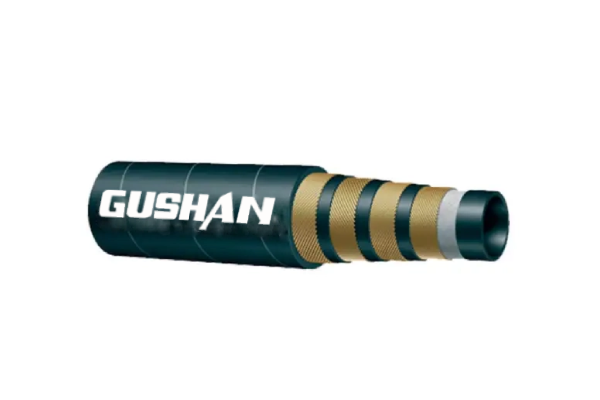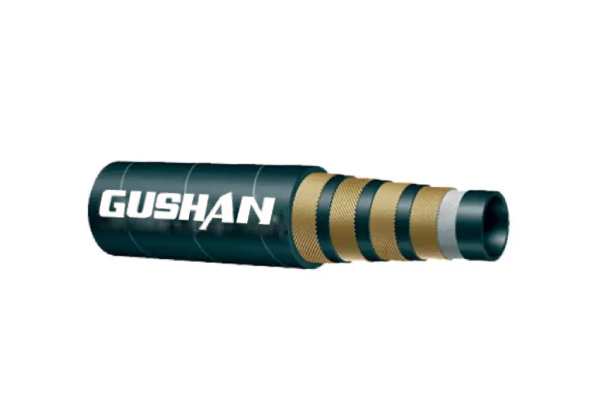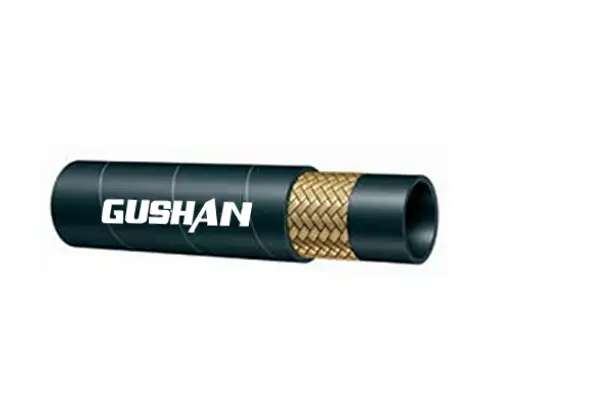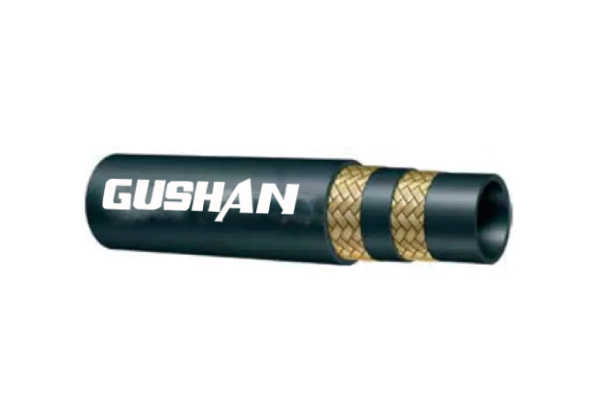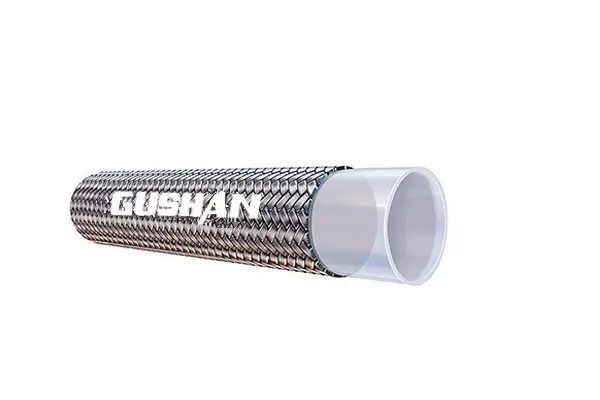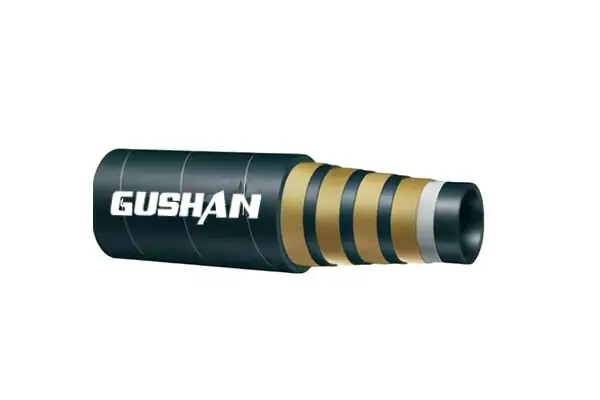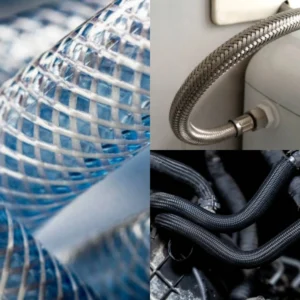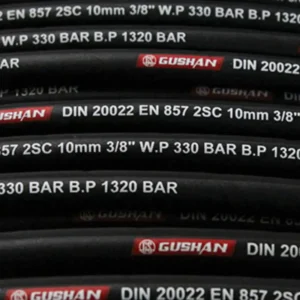Choosing the right hose for your application is critical, and when it comes to diesel fuel, the stakes are even higher. Using an incompatible hose can lead to leaks, system failure, and even hazardous spills, jeopardizing both your equipment and safety.
Many wonder if a hydraulic hose, designed for high-pressure fluid transfer, can safely handle diesel. It’s a common question with an answer that requires a closer look at material compatibility, pressure ratings, and industry standards to avoid costly mistakes.
Can Hydraulic Hose Be Used for Diesel Fuel?
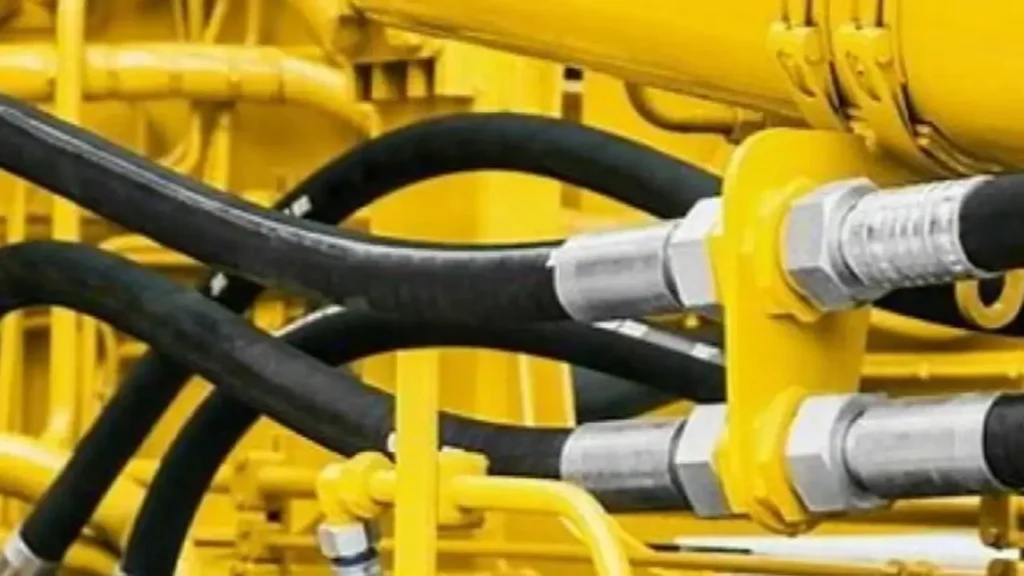
While hydraulic hoses are built for high pressure, not all of them are suitable for diesel fuel. The key lies in the material compatibility of the hose’s inner tube and cover with diesel, including modern blends containing aggressive additives or biodiesel (FAME). Using an incompatible hose can lead to several serious issues:
- Material Degradation: Diesel can cause the hose material to swell, harden, or crack over time, leading to leaks and eventual failure.
- Permeation: Incompatible hoses may allow diesel fuel to permeate through the hose walls, causing fuel loss, unpleasant odors, and environmental concerns.
- Safety Hazards: Leaking fuel poses a significant fire risk and can damage surrounding equipment or the environment.
To ensure safety and optimal performance when using a hydraulic hose for diesel fuel, look for products specifically rated for this application. These hoses are engineered with materials like Nitrile (NBR) or Fluorocarbon (FKM) rubber, which offer superior resistance to petroleum-based fluids. Always check the hose’s specifications and look for certifications that indicate compatibility with diesel, such as SAE J30 or ISO standards.
Is Hydraulic Hose Rated for Diesel Fuel?
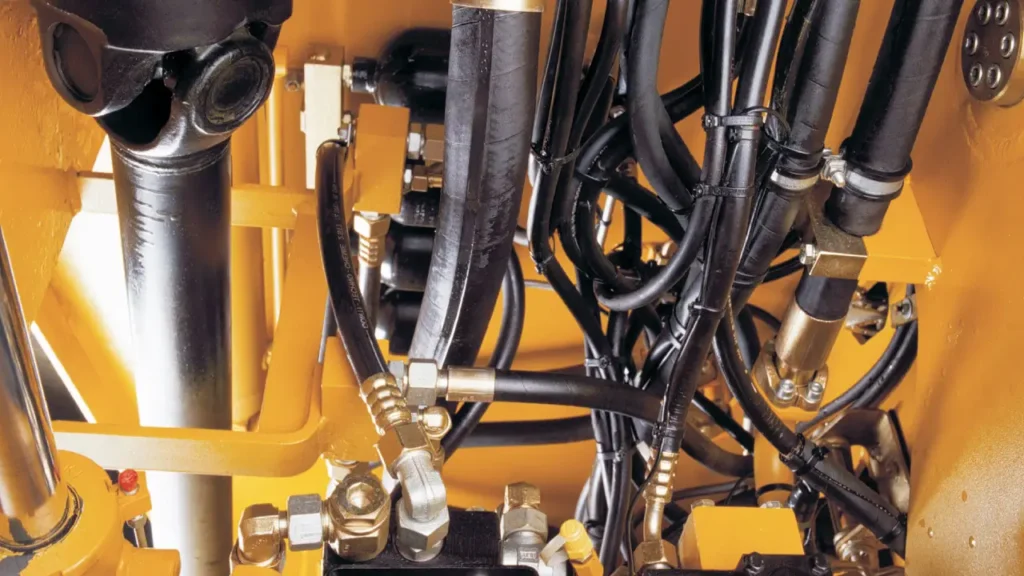
It’s a common misconception that all hydraulic hoses can handle diesel fuel simply because they’re designed for fluid transfer. In reality, the suitability of a hydraulic hose for diesel depends entirely on its specific ratings and the materials used in its construction. Standard hydraulic hoses are typically designed for petroleum-based hydraulic fluids, which have different chemical compositions and properties than diesel fuel, especially modern blends containing biodiesel (FAME) or aggressive additives.
Using a hydraulic hose not explicitly rated for diesel can lead to serious consequences. The diesel fuel can cause the hose’s inner tube and cover to degrade, leading to:
- Swelling and Softening: The hose material absorbs the diesel, causing it to expand and lose its structural integrity.
- Hardening and Cracking: Over time, the material can become brittle and crack, leading to leaks.
- Permeation and Leaks: Diesel can slowly seep through incompatible hose walls, resulting in fuel loss, unpleasant odors, and potential environmental contamination or fire hazards.
- Reduced Service Life: The hose will fail much faster than expected, leading to costly downtime and replacements.
Therefore, it is crucial to select hoses that are specifically rated for diesel fuel transfer. Look for hoses that comply with relevant industry standards such as SAE J30 or ISO standards for fuel lines.
These hydraulic hoses are engineered with materials like Nitrile (NBR) or Fluorocarbon (FKM) rubber, which offer superior resistance to the chemical properties of diesel fuel and its additives. Always consult the manufacturer’s specifications and chemical compatibility charts to ensure the hose is appropriate for your specific diesel application, including any biodiesel blends.
What Type of Hose is Best for Diesel Fuel?
Recommended Hydraulic Hoses
Choosing the optimal hose for diesel fuel transfer is crucial for safety, efficiency, and longevity. The best type of hose depends on various factors, including the specific application, pressure requirements, and environmental conditions.
Nitrile (NBR) Rubber Hoses
Nitrile rubber, also known as Buna-N, is a widely used material for diesel fuel hoses due to its excellent resistance to petroleum-based products. Hydraulic hoses with an NBR inner tube are highly effective in preventing degradation and permeation when exposed to diesel. They offer good flexibility and can withstand a range of temperatures, making them suitable for many common fuel transfer applications.
Thermoplastic Hoses
Thermoplastic hoses, often made from materials like Nylon or Polyurethane, are another viable option for diesel fuel. These hoses are known for their lightweight nature, resistance to abrasion, and often have a smaller bend radius than rubber hoses. They are particularly popular in applications where space is limited or where a very clean, non-contaminating inner surface is required. Their multi-layered construction often includes a barrier layer to prevent fuel permeation.
Fluorocarbon (FKM/Viton) Lined Hoses
For the most demanding diesel fuel applications, especially those involving biodiesel blends (B20 and higher) or extreme temperatures, fluorocarbon-lined hoses (such as Viton) are the superior choice.
FKM offers exceptional chemical resistance to a broad spectrum of fuels and additives, preventing virtually any degradation or permeation. While generally more expensive, their extended lifespan and reliability make them cost-effective for critical systems.
Which Type of Pipe Should Never Be Used for Fuel Oil Lines?
When it comes to fuel oil lines, certain types of pipes should be strictly avoided due to compatibility issues, corrosion risks, and the potential for serious system failures or hazards. The most critical pipe to never use for fuel oil lines is galvanized steel pipe.
Here’s why:
Zinc Contamination: Galvanized pipe is coated with a layer of zinc. Diesel fuel, especially modern blends, can react with and dissolve this zinc coating over time. The dissolved zinc then forms small particulates in the fuel, which can:
- Clog fuel filters, leading to reduced fuel flow and engine performance issues.
- Damage sensitive fuel system components like fuel pumps and injectors, causing premature failure.
Corrosion and Flaking: The protective zinc layer can also flake off internally, introducing solid contaminants into the fuel stream even without chemical reaction. This flaking further exacerbates the risk of clogging and damage to precision-engineered fuel system parts.
Electrolytic Corrosion: When galvanized pipe is connected to other types of metal pipes, it can create an electrolytic reaction (galvanic corrosion), accelerating the corrosion of one or both metals. This weakens the pipeline and increases the likelihood of leaks.
What Are the Standards for Diesel Fuel Hoses
Ensuring safety and performance in diesel fuel applications requires hoses that meet specific industry standards. These standards dictate material compatibility, pressure ratings, temperature ranges, and other critical characteristics to prevent leaks, degradation, and environmental hazards. Key standards to look for include:
- SAE J30: This is a widely recognized standard from the Society of Automotive Engineers (SAE) that covers fuel and oil hoses for use in automotive and allied applications. It defines various types of hoses (e.g., R1, R2, R3) with different constructions and performance requirements, including resistance to gasoline, diesel fuel, lubricating oil, and their vapors. Importantly, it has specific provisions for diesel and biodiesel fuel feed and return hoses.
- UL 330 (specifically UL 330B): Underwriters Laboratories (UL) develops safety standards for a broad range of products. UL 330 covers hoses and hose assemblies for dispensing flammable and combustible liquids. UL 330B specifically addresses hoses used for dispensing diesel fuel, biodiesel fuel (up to B20), kerosene, and fuel oil, ensuring they meet rigorous safety and performance criteria.
- ISO Standards (e.g., ISO 7840): The International Organization for Standardization (ISO) provides global standards. While ISO 7840 is primarily for marine fuel hoses, it outlines general requirements for fuel hoses, including resistance to fire, fuel permeation, and other environmental factors, which are relevant considerations for any diesel fuel application.
Conclusion
In conclusion, while some hydraulic hoses might seem capable of handling diesel fuel, it’s crucial to prioritize safety and longevity. Always check the hose’s specifications for explicit compatibility with diesel, considering the material of the inner tube, cover, and reinforcement.
Using the wrong hose can lead to material degradation, leaks, and potential hazards, ultimately costing more in repairs and downtime. Invest in hoses specifically rated for fuel transfer to ensure optimal performance and peace of mind.
For reliable, wholesale options, consider our reputable hydraulic hose supplier, and we offer a range of hydraulic hoses explicitly designed for diesel fuel applications, often with detailed specifications for peace of mind.

